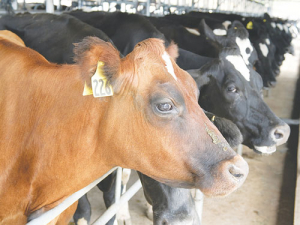Experts appointed by the Ministry of Primary Industries (MPI) to look at possible entry routes of the disease couldn’t confirm imported frozen semen as the source; MPI has focussed on imported semen as the source of M.bovis.
The technical advisory group (TAG) was split on the possibility of successfully eradicating the disease. They looked at imported semen, live animal imports, bovine feed and imported used equipment as possible sources.
“In the case of this M.bovis introduction, all the entry mechanisms that can be postulated are improbable, yet one of them resulted in entry,” the group’s report says.
It notes that New Zealand has a long history of importing about 250,000 straws of semen each year for several decades. “If semen was likely to be a pathway for the introduction of M.bovis then it would be reasonable to expect this organism to be endemic and widespread in the country.”
On eradication, the TAG says on the basis of data presented to it eradication is “technically feasible” and is the preferred option.
Despite clear links between infected properties, the extent of the infection, complexity of diagnostic tests and deficiencies in record-keeping on animal movements will make the task of eradication difficult and expensive.
A minority of TAG members believe successful eradication is questionable due to the likelihood of undetected spread since (possibly) 2015, the scale of tracing required and the failure of NAIT to fully track animal movements.
MPI’s director of response, Geoff Gwyn, says a range of options remain for consideration before a final decision can be made on eradication.
“There is critical work being done to model the potential spread of Mycoplasma bovis under different scenarios and in understanding the costs and benefits of decisions on eradication.
“We are confident the disease is not well established in NZ and we now need to complete our analysis and planning.”
Last week MPI said it had searched three locations related to potential breaches of legislation related to the M.bovis response. Such breaches could relate to the Biosecurity Act in regards to importing genetic material – semen, embryos or drugs.
Since the M.bovis outbreak many claims have been made about how the disease entered NZ, including semen imports and secret importing and use of induction drugs by farmers. (NZ has banned cow inductions since 2015).

















